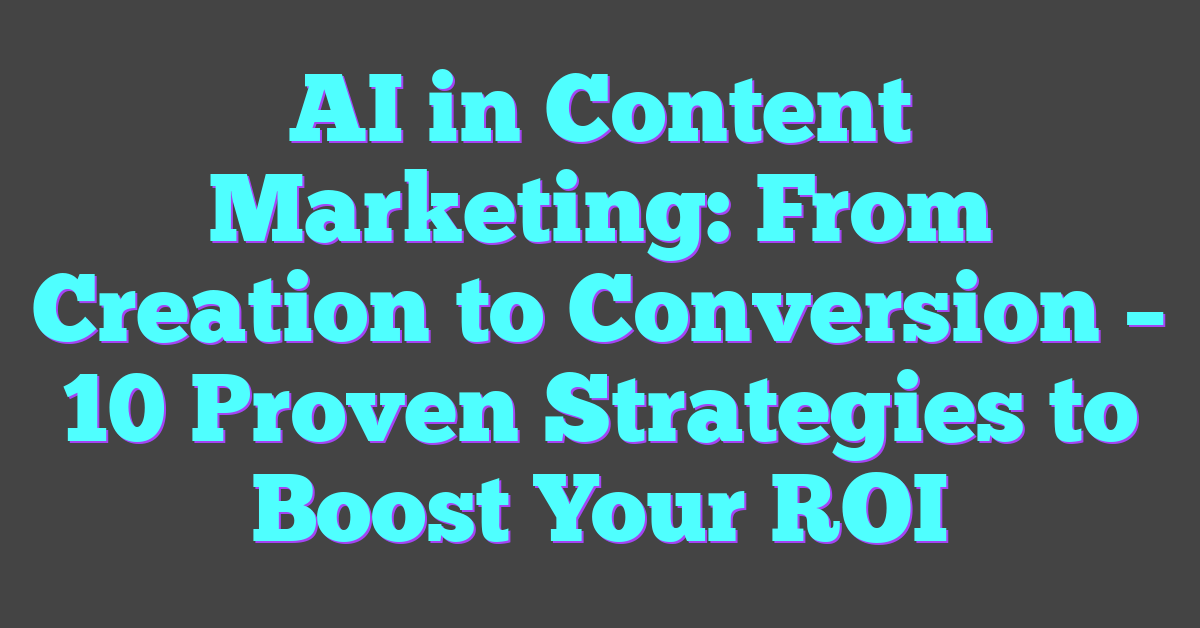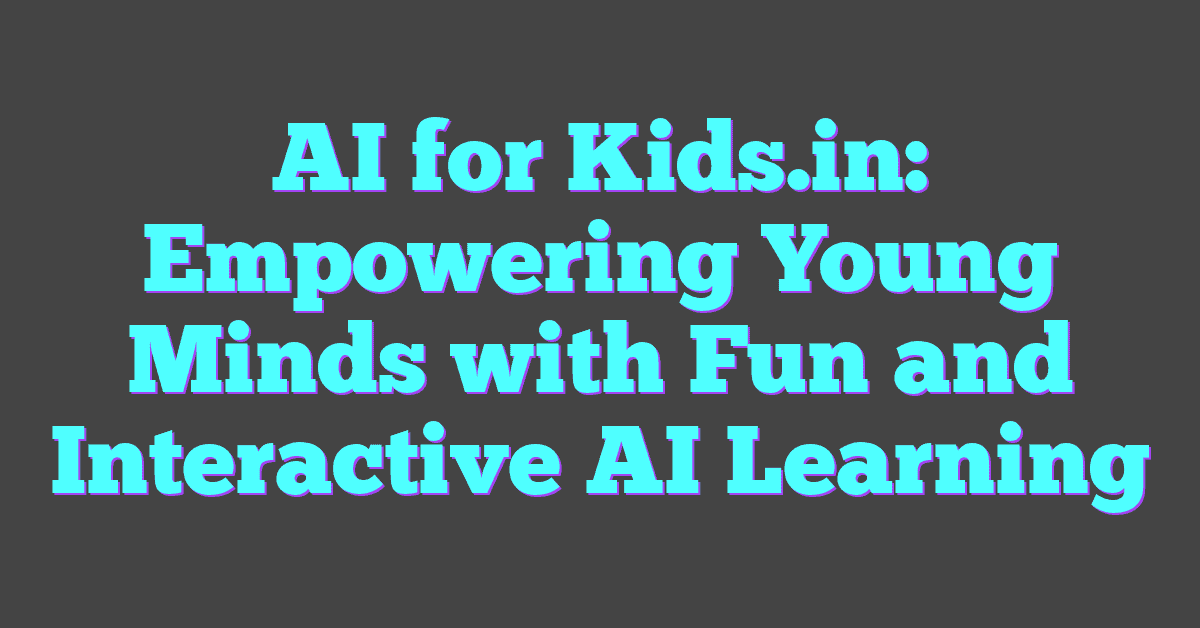Key Takeaways
- AI significantly streamlines content creation, boosting productivity by up to 30%.
- Data-driven insights from AI enhance creativity and tailor content to specific audience preferences.
- AI-powered SEO tools optimize keywords and improve search rankings, increasing organic traffic by 20%.
- Personalized marketing strategies enabled by AI lead to higher engagement and conversion rates.
- Automated content distribution and real-time analytics maximize reach and marketing efficiency.
Content marketing has evolved dramatically with the rise of artificial intelligence. Businesses now harness AI to streamline content creation, ensuring messages resonate with their audience. From generating blog posts to crafting personalized emails, AI tools make the process faster and more efficient.
But it doesn’t stop there. AI also plays a crucial role in converting readers into customers. By analyzing data and predicting behaviors, it helps marketers tailor their strategies for maximum impact. This seamless integration of creation and conversion showcases how AI is transforming the landscape of content marketing, making it smarter and more effective than ever before.
AI in Content Creation
AI transforms content creation, making it more efficient and innovative. Businesses utilize AI tools to produce high-quality content swiftly.

Automated Content Generation
AI-driven tools generate articles, social media posts, and product descriptions with minimal human intervention. Natural language processing models like GPT-4 produce coherent, contextually relevant text, reducing content creation time. Companies using AI for content generation report a 30% increase in productivity, allowing marketers to focus on strategy and personalization.
Enhancing Creativity with AI
AI enhances creativity by offering data-driven insights and creative suggestions. Machine learning algorithms analyze audience preferences, enabling tailored content that resonates with specific demographics. Additionally, AI-powered tools provide design recommendations and optimize multimedia elements, resulting in more engaging and innovative content.
| Benefit | Description |
|---|---|
| Audience Analysis | Identifies preferences for targeted content |
| Creative Suggestions | Offers ideas based on trend analysis |
| Design Optimization | Enhances visual elements for better engagement |
Content Optimization with AI
AI streamlines content optimization by enhancing SEO and personalizing user experiences.
SEO and Keyword Analysis
AI tools conduct in-depth SEO analyses by identifying relevant keywords. These tools assess keywords based on search volume, competition, and relevance. For example, companies using AI for SEO report significant increases in organic traffic.
Key Benefits of AI in SEO:
- Accurate keyword identification.
- Automated meta tag generation.
- Predictive analysis of search engine algorithms.
Impact of AI on SEO Performance:
| Metric | Improvement |
|---|---|
| Organic Traffic | +20% |
| Search Rankings | +15% |
| Content Efficiency | +25% |
Personalization Strategies
AI enables personalized content by analyzing user behavior and preferences. Machine learning models segment audiences based on interactions, demographics, and purchase history. Personalized email campaigns achieve higher open rates compared to generic ones. Dynamic website content adapts in real-time to individual user profiles. Furthermore, AI recommends tailored product suggestions, boosting average order values.
Personalization Techniques:
- User behavior analysis.
- Audience segmentation.
- Real-time content adaptation.
- Personalized product recommendations.
| Technique | Result |
|---|---|
| Email Campaigns | +25% open rates |
| Website Content | +30% engagement |
| Product Recommendations | +15% average order value |
Content Distribution with AI
AI revolutionizes how content reaches audiences by streamlining distribution processes and enhancing performance insights.
Automating Distribution Channels
AI optimizes content distribution by leveraging automated tools and intelligent scheduling. Platforms such as Hootsuite and Buffer use AI to determine the best times to post, ensuring maximum engagement. Additionally, AI-driven email marketing tools like Mailchimp and HubSpot automate campaign delivery based on user behavior, increasing efficiency and reach. Key benefits include:
- Scheduling: Automates post timing to align with audience activity.
- Targeting: Personalizes content delivery to specific audience segments.
- Scaling: Manages multiple channels simultaneously without manual intervention.
Performance Tracking and Analytics
- Real-Time Monitoring: Tracks content performance instantly, allowing for swift adjustments.
- Predictive Analysis: Forecasts future trends based on historical data and user behavior.
- Automated Reporting: Generates comprehensive reports automatically, saving time and reducing errors.
| Feature | Description |
|---|---|
| Real-Time Monitoring | Tracks content performance instantly, allowing for swift adjustments. |
| Predictive Analysis | Forecasts future trends based on historical data and user behavior. |
| Automated Reporting | Generates comprehensive reports automatically, saving time and reducing errors. |
| Data Integration | Combines data from multiple sources to provide a unified view of content performance. |
| Actionable Insights | Delivers recommendations based on data analysis to optimize marketing strategies. |
Conversion Strategies Using AI
AI-driven conversion strategies enhance the ability to turn visitors into customers efficiently. By leveraging advanced technologies, businesses achieve higher conversion rates and improved customer experiences.
Predictive Analytics
Predictive analytics utilizes machine learning algorithms to forecast customer behaviors and trends. By analyzing historical data, AI identifies patterns that indicate purchasing intentions. For example, companies implementing predictive analytics have seen conversion rate increases of up to 25%. AI models assess factors such as browsing history, purchase frequency, and engagement levels to tailor marketing efforts.
| Metric | Improvement |
|---|---|
| Conversion Rate | +25% |
| Customer Retention | +15% |
| Average Order Value | +10% |
Businesses use predictive analytics to optimize pricing strategies, recommend products, and personalize marketing messages. If data quality remains high, predictive models continuously improve, leading to more accurate forecasts and effective conversion tactics.
Personalized Customer Journeys
Personalized customer journeys leverage AI to create customized experiences for each user. By segmenting audiences based on behavior and preferences, AI delivers relevant content and offers. For instance, personalized email campaigns generated by AI achieve open rates 30% higher than generic emails.
Key applications include:
- Dynamic Content Delivery: AI adjusts website content in real-time based on user interactions, enhancing relevance and engagement.
- Targeted Advertising: Machine learning identifies optimal ad placements and messaging, increasing click-through rates.
- Customized Recommendations: AI-driven recommendation engines suggest products tailored to individual user preferences, boosting sales.
Implementing personalized customer journeys ensures that each interaction resonates with the user, significantly improving the likelihood of conversion.
Challenges and Future of AI in Content Marketing
While AI transforms content marketing, it introduces several challenges that must be addressed to maximize its potential.
Ethical Considerations
AI in content marketing raises significant ethical issues that marketers must navigate carefully. Data privacy concerns emerge as AI tools collect and analyze vast amounts of user information to personalize content. Ensuring compliance with regulations like GDPR and CCPA safeguards user trust and prevents legal repercussions. Bias in AI algorithms presents another challenge, as biased data can lead to unfair or inaccurate content targeting. Regular audits and diverse data sets mitigate these risks, promoting fairness and inclusivity. Transparency also plays a crucial role; clearly communicating AI’s role in content creation enhances credibility and maintains audience trust. Additionally, the potential for AI-generated misinformation necessitates robust verification processes to ensure content accuracy and reliability. Addressing these ethical considerations is essential for sustainable and responsible AI-driven content marketing strategies.
Conclusion
AI has reshaped content marketing, making processes smarter and more efficient. Businesses now create engaging content faster and tailor it to individual audiences with ease. By leveraging data and predictive analytics AI helps turn readers into loyal customers, enhancing conversion rates.
The personalization capabilities of AI ensure that each user’s experience is unique and relevant, boosting engagement and satisfaction. Additionally AI streamlines distribution and optimizes SEO strategies, driving more organic traffic and better search rankings.
While embracing AI brings remarkable advantages it also requires careful consideration of ethical issues like data privacy and algorithmic bias. Companies that navigate these challenges effectively can harness AI’s full potential, leading to innovative and impactful content marketing strategies that resonate with audiences and drive success.




